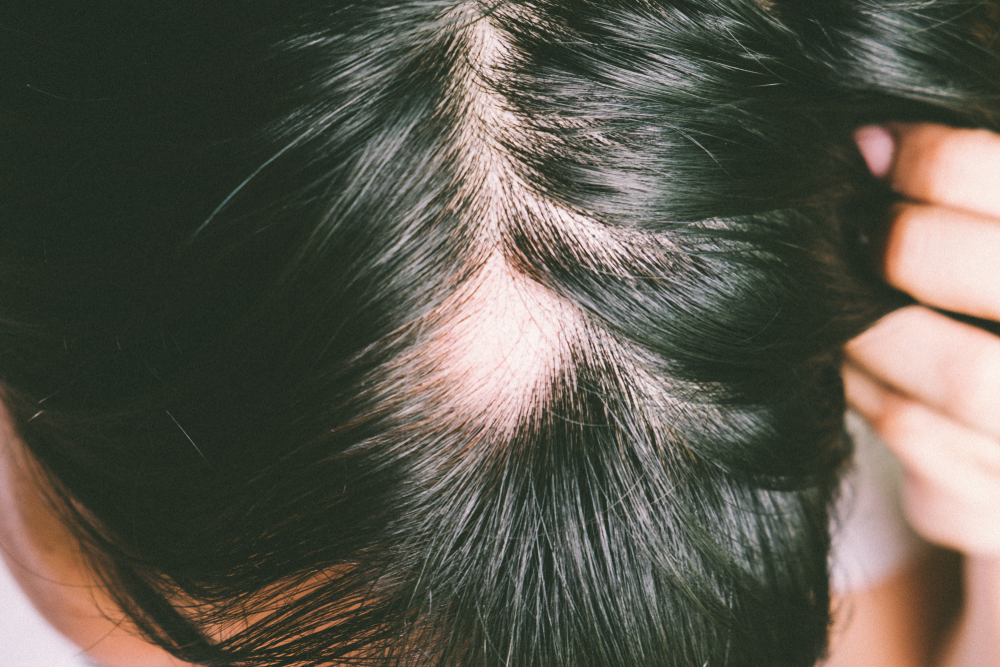What is Alopecia Areata?
Alopecia areata is a medical condition where hair loss occurs in small well-defined patches. In mild cases, or when the condition is first taking effect, these patches may not be noticeable to others, but they can worsen to the point where you may feel self-conscious about your appearance. Alopecia areata can be variable in its severity and distribution resulting in isolated patchy hair loss, complete hair loss on the scalp, or complete hair loss over your entire body.
What are the Signs of Alopecia Areata?
Typically at onset with alopecia areata, hair will fall out in small patches on your scalp. These patches are small and often no more than a few centimeters in diameter. Hair loss is often located on the scalp, but some people may lose hair on other parts of their body as well, including the eyebrows, eyelashes, and/or beard. It is possible to lose hair from areas that are not the face or scalp, but this is less common.
The first signs of hair loss typically may be noticed on your pillow or when you are in the shower, as you will either see or feel the clumps of hair coming off. If the hair loss begins on the back of your head, you may have it pointed out to you by others. Keep in mind that hair loss is not exclusively caused by alopecia areata, so if you are experiencing unexpected or sudden hair loss, you should consult with a board-certified dermatologist to find out the cause before looking at treatments for alopecia areata specifically.
Who is Affected by Alopecia Areata?
Alopecia areata is seen equally in both sexes and in patients of all ages and ethnicities. It is considered an autoimmune disease, which means that your body’s immune system gets confused and incorrectly sees certain cells in your body (such as hair follicles) as foreign objects and proceeds to attack them. This results in subsequent hair loss in the affected area. Some people with alopecia areata also can have other autoimmune diseases like hypothyroidism or hyperthyroidism so it is important to be evaluated by a physician if you notice other accompanying symptoms aside from hair loss.
What Are the Treatment Options?
There is no known cure for alopecia areata, but there are treatment options to slow down the damage to the hair follicles and ways to cover up hair loss. Treatments include topical, oral, or injectable treatment options The most effective treatment will be determined by your doctor based on your skin, overall health, and severity of hair loss.
Board-Certified Dermatologists in Arlington, VA
To get started on treating your hair loss, you will first want to set up a consultation with the experienced board-certified dermatologists at Arlington Dermatology in Arlington, Virginia. They will assess your condition and work with you to choose the treatment that fits your specific hair loss situation.



